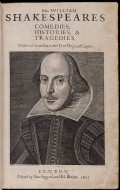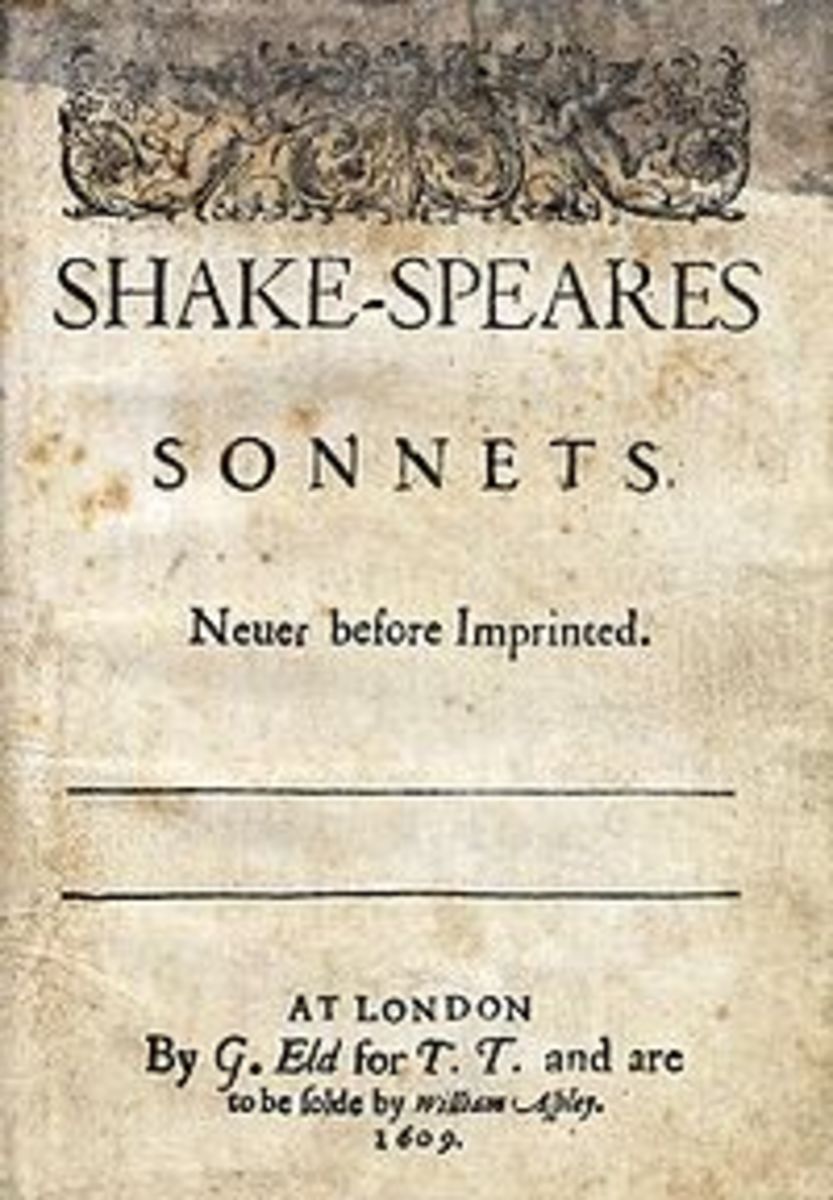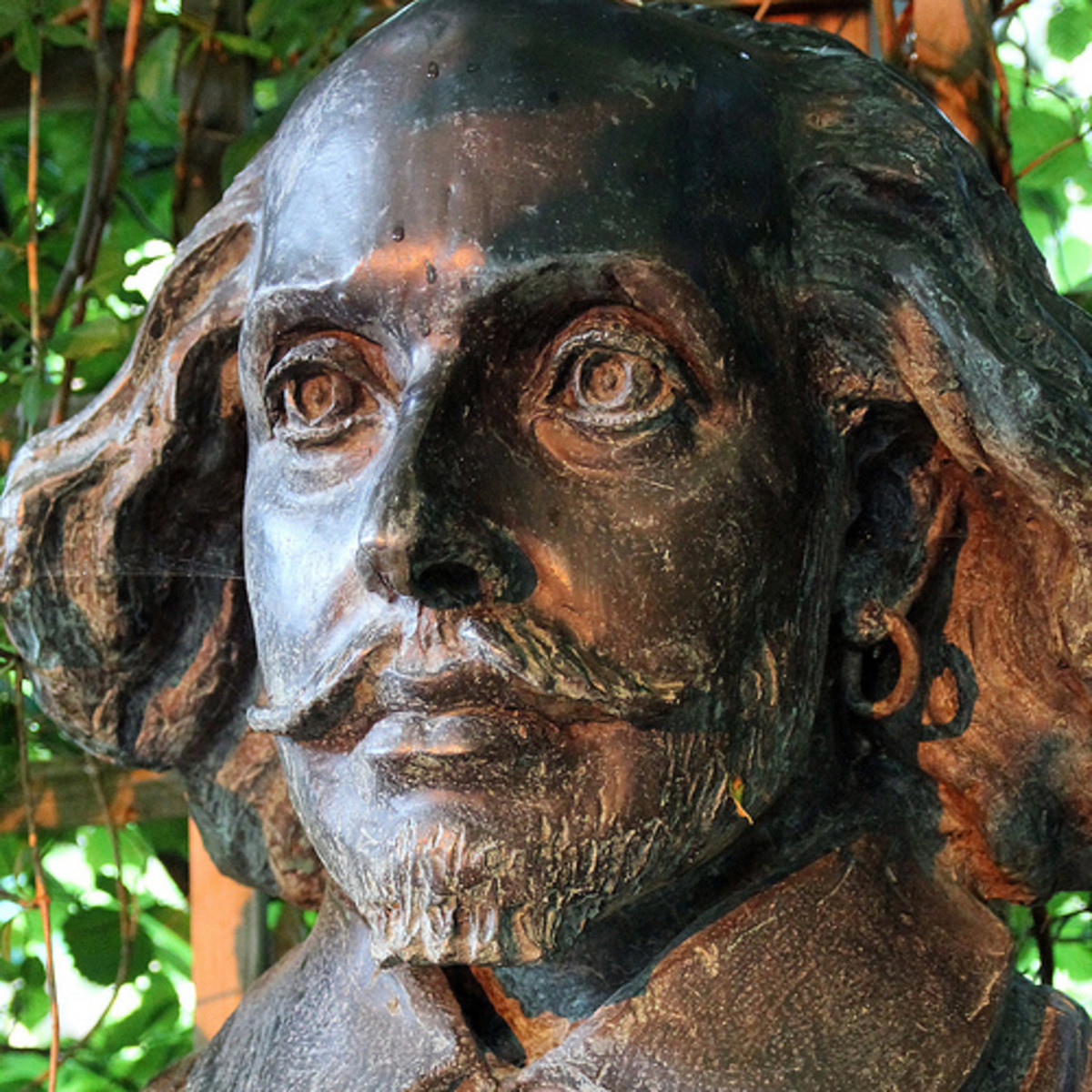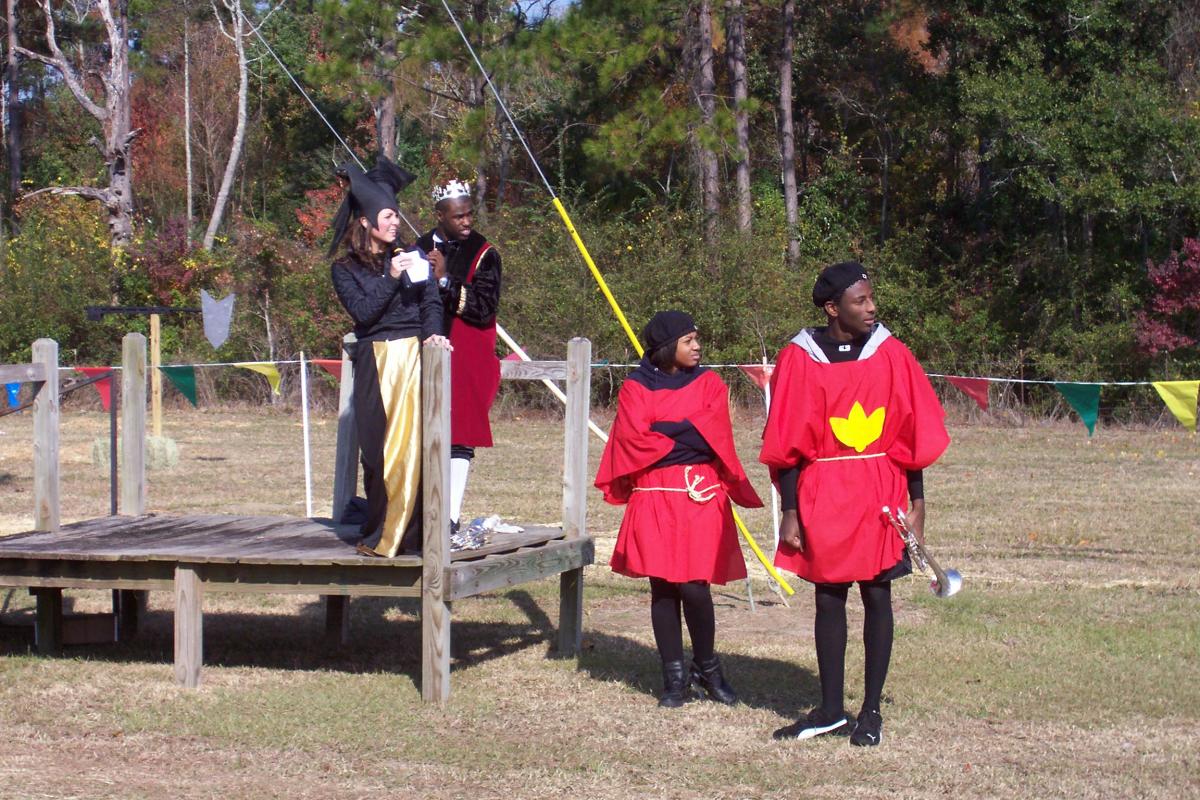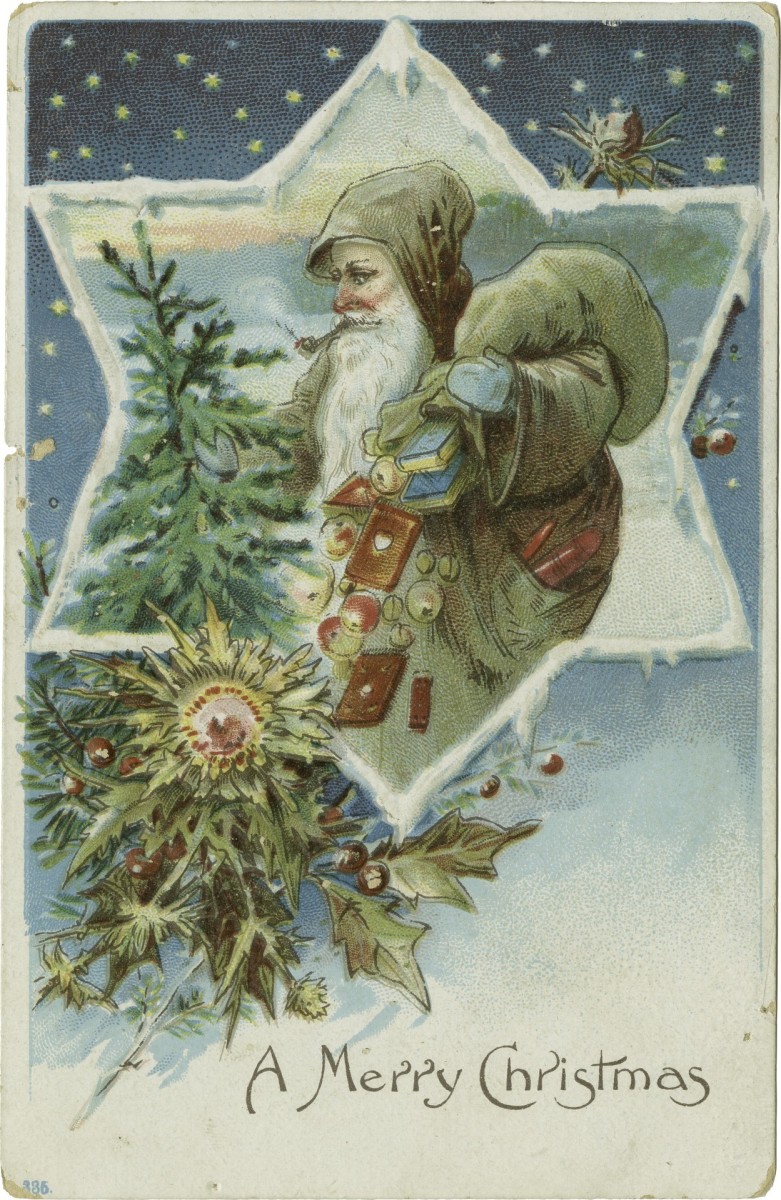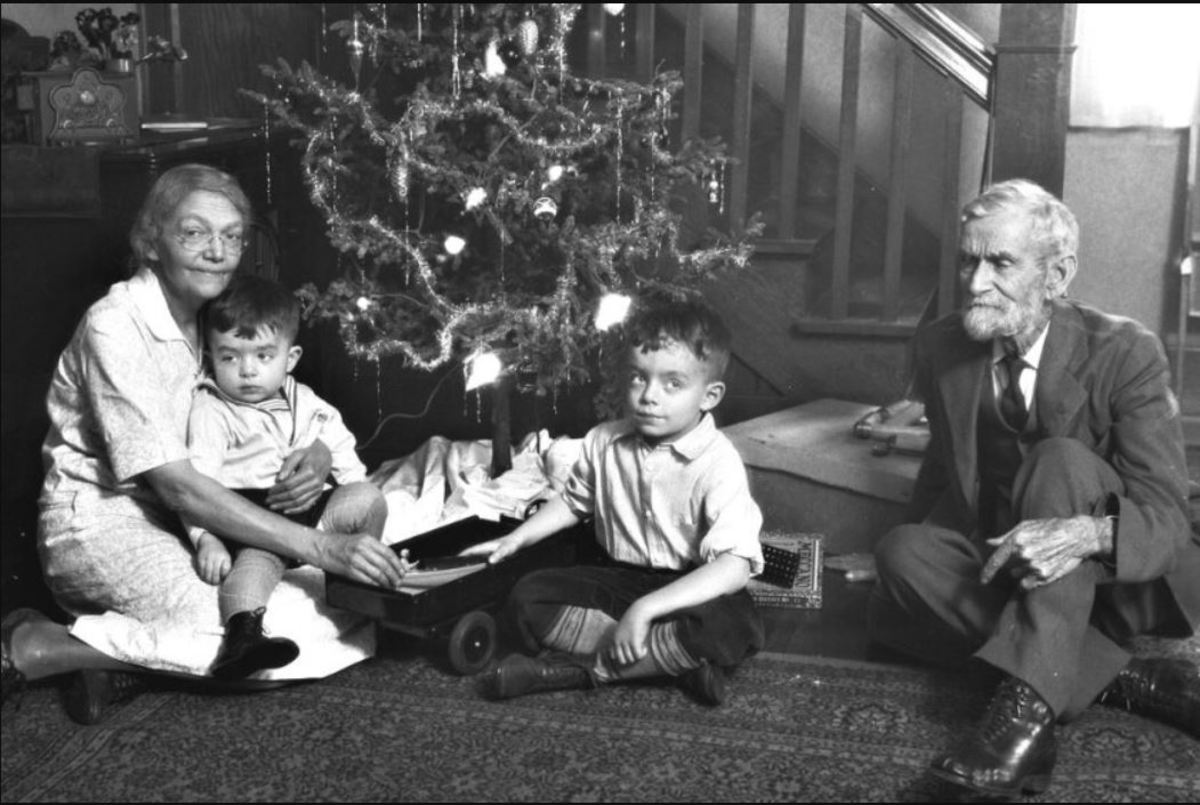William Shakespeare ~ Did He Hate Christmas?
'Christmas in Shakespeare's England'
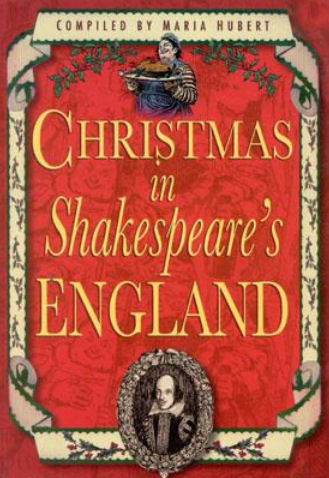
What did Shakespeare write about Christmas?
What did Shakespeare have to say about Christmas?
~ Not very much, it seems.
One of his plays is called 'Twelfth Night' ~ which is the 12th day of the Christmas festivities ~ and there is a reference to Christmas night in 'Hamlet'.
And that's it.
We could add some 'Winter' references ~ there is 'A Winter's Tale' and there are some poems.
But why the scarcity of festive compositions, I wonder???
Can we find out more, by studying the available evidence?
*
Max Beerbohm offers an intriguing suggestion ~ albeit in his 1912 parody 'A Christmas Garland'.
Writing in the style of Frank Harris, he indicates that this serasonal lack may be connected, somehow, to Anne Hathaway and, supposesdly, to Shakespeare's relationship with his wife.
Shakespeare and Christmas?
Shakespeare, Christmas, and Max Beerbohm
'If there is one thing lucid-obvious in the Plays and Sonnets, it is Shakespeare's unconquerable loathing of Christmas.' [Max Beerbohm as 'Fr*nk H*rr*s']
Since Shakespeare writes eloquently about 'everything under the sun' ~ everything except Christmas ~ Beerbohm asserts that there must have been 'some good reason for that abstinence'.
And, according to his article, he thinks that he has discovered it: 'On Christmas Day, assuredly, Anne Hathaway was born.'
He reminds us that, while we learn about the births of Shakespeare's heroines ("There was a star danced, and under that" was born Beatrice. Juliet was born "on Lammas Eve.") 'Shakespeare says never a word about the birthdays of the various shrews and sluts in whom, again and again, he gave us his wife.'
He concludes that 'It is clear that Shakespeare cannot bring himself to write about Anne Hathaway's birthday' and the reason why he should 'loathe Christmas Day itself with precisely the same loathing' is because she was born on that day.
Beerbohm / H*rr*s acknowledges that there is a reference of sorts to Christmas in the play 'Hamlet'.
Reference: "Shakespeare and Christmas", the 1912 parody of Harris's style in Max Beerbohm's 'A Christmas Garland'.
http://www.ellaguru.uklinux.net/harris/shakespeareandxmas.html
Beerbohm and Shakespeare's 'Loathing of Christmas'.
Is Beerbohm right?
*
Did Shakespeare loathe Christmas?
Did Christmas Day happen to be Anne Hathaway's birthday?
Did William hate Anne?
Is Anne 'the shrew'?
Did Shakespeare hate Christmas, because it was his hated wife Anne's birthday?
'A Winter's Tale' on DVD
Mrs. Shakespeare: Anne Hathaway
Extract from 'Mrs. Shakespeare: Anne Hathaway' by J. M. Pressley,
'The hard facts of Anne Hathaway's life can be summed up in a paragraph. She was born in Shottery in 1556. She married William Shakespeare .. prior to the birth of their first daughter, Susanna, in May of 1583. In 1585, she bore him .. the twins Hamnet and Judith.
'While Shakespeare made his reputation in London, Anne stayed behind in Stratford. .... Some suggest a cuckolded, bumpkin wife left behind in Stratford. Others draw a more favorable caricature ....
'Both viewpoints ... must ultimately be recognized for what they are: pure speculation.'
'To [Stephen] Greenblatt, Shakespeare hated his wife.'
Shakespeare's Sonnet 145
This sonnet ~ number 145 ~ is, reputedly, about Anne, and Will's young love for Anne, and his distress if he ever thought that she might hate him:
****
Those lips that Love's own hand did make
Breathed forth the sound that said 'I hate'
To me that languish'd for her sake;
But when she saw my woeful state
Straight in her heart did mercy come,
Chiding that tongue that ever sweet
Was used in giving gentle doom,
And taught it thus anew to greet:
'I hate' she alter'd with an end,
That follow'd it as gentle day
Doth follow night, who like a fiend
From heaven to hell is flown away;
'I hate' from hate away she threw,
And saved my life, saying 'not you'.
*
Compare:
'Hate away' and 'Hathaway'
'And saved my life' and 'Anne saved my life'
Note:
'I hate'
'I hate' ... 'not you.'
Greenblatt on Shakespeare - Book
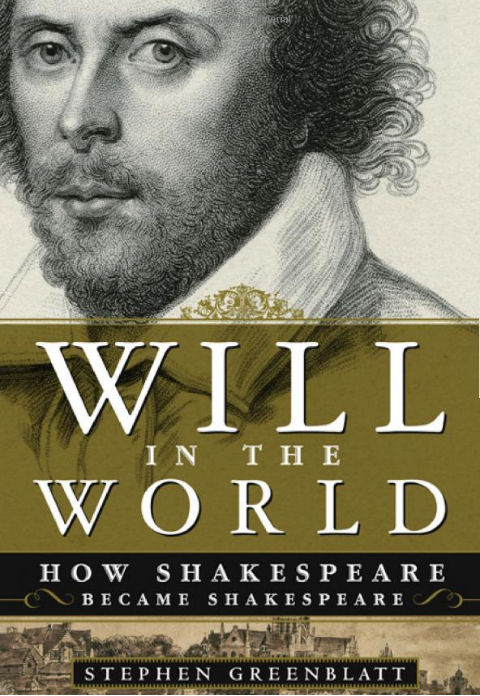
Greenblatt on Shakespeare
Stephen Greenblatt on Shakespeare's Marriage
'Will in the World: How Shakespeare Became Shakespeare' by Stephen Greenblatt ~ a review by James Neal Webb
'Stephen Greenblatt is a Harvard professor, a world-renowned authority on English literature ...'
'Greenblatt presents the available evidence within the context of Shakespeare's culture and times ....'
'... While Shakespeare's comedies ... feature an assortment of couples .. Greenblatt makes the cogent point that there are comparatively few words in Shakespeare's work about marriage. Those marriages Shakespeare does portray end tragically ....'
'Greenblatt makes an obvious connection to Shakespeare's own dysfunctional marriage .. but he points out that Shakespeare's flight to London might also have been driven by his closet Catholicism ....'
http://www.bookpage.com/books-12015-Will+in+the+World
* * * *
Anne Hathaway's Cottage, Shottery
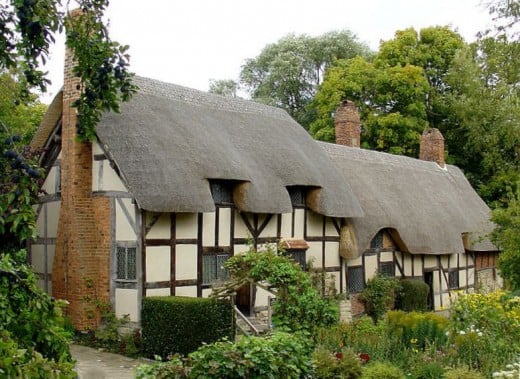
Shakespeare's Birthplace - Stratford Upon Avon
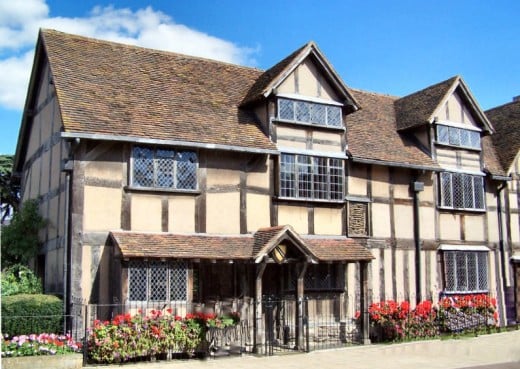
Hamlet
Excerpt from Hamlet
'Hamlet' ~ ACT I, SCENE I. Elsinore. A platform before the castle.
Bernardo, Marcellus and Horatio see what they believe to be the ghost of Old Hamlet, the recently-deceased king of Denmark.
The cock crows and the ghost disappears.
BERNARDO: It was about to speak, when the cock crew.
HORATIO: And then it started like a guilty thing Upon a fearful summons. ...........................
MARCELLUS: It faded on the crowing of the cock. Some say that ever 'gainst that season comes Wherein our Saviour's birth is celebrated, The bird of dawning singeth all night long: And then, they say, no spirit dares stir abroad; The nights are wholesome; then no planets strike, No fairy takes, nor witch hath power to charm, So hallow'd and so gracious is the time.
HORATIO: So have I heard and do in part believe it ....
Shakespeare's Birthplace. Stratford Upon Avon
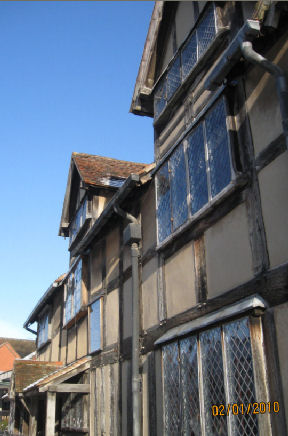
Hamlet. Act 1, Scene 1. Comments
This brief extract contains references both to the birth and death of Jesus Christ.
The references to the cock crowing and the associated 'guilty thing', refer to the time, near the end of Jesus's life, when Peter denied his Lord three times before the cock crowed ~ and then felt very guilty once he heard the sound.
The nativity of Jesus is clearly mentioned: 'that season comes Wherein our Saviour's birth is celebrated'. And superstitions had evolved concerning that time: 'they say, no spirit dares stir abroad' ~ 'no planets strike, No fairy takes, nor witch hath power to charm, So hallow'd and so gracious is the time'.
This represents a set of superstitions relating to Christmas Eve. Apparently, this night is so sacred that ghosts, witches and fairies will not venture forth or attempt any magic.
In this play, Shakespeare addresses the controversial theme of purgatory and the afterlife. During Tudor times, the country had lunged from Catholicism to Protestantism, and back again. One's beliefs could put one in great danger ~ and Shakespeare had been brave enough to deal with the subject. Yet the most that he could say about Christmas, or rather the hallow'd and 'gracious' 'season .. Wherein our Saviour's birth is celebrated' was that 'no spirit dares stir abroad; .. no planets strike, No fairy takes, nor witch hath power to charm ...'.
Why is he so reticent about the subject?
Just Hamlet??
Is 'Hamlet' the only one of Shakespeare's works that relate, in any way, to Christmas?
Well ... there is 'Loves Labours Lost' and 'Twelfth Night'!
This is from the former:
Love's Labour's Lost - Act 1, Scene 1:
The King of Navarre's park.
BIRON:
"At Christmas I no more desire a rose
Than wish a snow in May's new-fangled mirth;
But like of each thing that in season grows."
As for the latter, most of us know that 'Twelfth Night' relates to Christmas ~ the night when we have to take down our Christmas decorations. We know the song 'The Twelve days of Christmas'.
Let us take a look at Shakespeare's play of the same name ~ an 'upside down' kind of play, reflecting the typical 'Lord of Misrule' of Christmastide':
'Twelfth Night'
Act one, scene one, opens at Duke Orsino's palace. The duke is surrounded by musicians.
Duke Orsino says: "If music be the food of love, play on ..."
* * *
'Twelfth Night' is one of Shakespeare's comedies, subtitled 'What You will.'
It was written around 1600 and first performed at the Middle Temple of the Inns of Court on 2nd February, 1602.
‘Twelfth Night’ represents the anniversary of the Epiphany ~ when the three kings, or the magi, visited the baby Jesus with gifts of gold, frankincense and myrrh. The 12th day of Christmas was the last day of the celebrations.
I wondered why, if this play concerned the twelfth day ~ and night ~ of Christmas, it would have been first produced on 2nd February. Then I discovered this quote on a website; 'The Three Wise Men are not included in the nativity scene until January 6, Three King's Day. The nativity scene is traditionally not taken down until 2 February, Candlemas' ~ so there is a link between epiphany and twelfth Night. It is between these two days that the 'three wise men' are on show.
[ http://www.woodlands-junior.kent.sch.uk/customs/Xmas/twelfth.htm ]
Typically 'Twelfth Night'
The play is something of a farce, with men dressed as women and women as men, and other people in other disguises ~ and all seemingly falling in love with the ‘wrong’ person. Many are made to look foolish, but there are three specific 'fools' in the play: Feste, the clown, Sir Toby Belch and Maria. But official 'fools' are not always 'foolish' and Feste seems wiser than many other characters in this play. Feste clarifies his position: "I wear not motley in my brain". Here he acknowledges that, while he may wear the motley dress of a jester ~ a fool' ~ he does not have the brain of a true fool. His intelligence is also shown in this aphorism: "Better a witty fool than a foolish wit" and Olivia says: "This fellow's wise enough to play the fool". The clown's name is suitable for twelfth night festivities: 'Feste'.
Maybe it is unsurprising to find at least one wise man at Epiphany, which commemorates the comment in Matthew's Gospel 'Now when Jesus was born in Bethlehem of Judaea in the days of Herod the king, behold, there came wise men from the east to Jerusalem ..' [Matthew 2:1-3].
According to Wikipedia: 'The play expanded on the musical interludes and riotous disorder expected of such an occasion ... The title Twelfth Night ... prepares the audience for its jovial feel of festivities consisting of drink, dance, and giving in to general self-indulgence. The subtitle What You Will implies that the audience is also involved in the merry spirit found in the play.'
[ http://en.wikipedia.org/wiki/Twelfth_Night ]
The word 'Christmas' is not used in this play, but 'Twelfth Night' is a part of Christmas ~ an important part ~ and February second, when the play was first performed, is the last day of Christmastide. Furthermore, the whole atmosphere of the play reflects the revels of Twelfth Night. Shakespeare is not ignoring the celebration of Christmastide, but he is not, here, referring to the religious aspect of a Christian Christmas.
Shakespeare's Birthplace in Winter
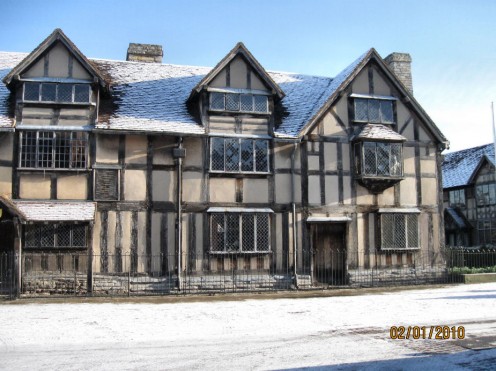
'Twelfth Night' and the Lord of Misrule
Jamaica Layne, in her blog, writes about Twelfth Night:
'During the medieval and renaissance period in Europe, the most important winter holiday wasn’t Christmas Day. .. it was Twelfth Night. ...'
'.. a general celebration of the winter season, and the last day of mass celebration before Candlemas .....'
Twelfth Night is also the ceremonial last night of the winter holiday season that begins on All Hallows Eve .. .'
.... Twelfth Night festivities, [as planned by the Lord of Misrule] could include a twelve-course feast, dancing, music, song, a costumed masque or pantomime, and .. scripted plays. In keeping with the Lord of Misrule’s name, most Twelfth Night parties have a “Topsy-Turvy” .. theme.
http://30daysofdecadence.blogspot.com/2010/12/twelfth-night-medieval-holiday.html
According to Castle Arcana: 'The Lord of Misrule is one of the lost characters of the riotous Medieval Christmas celebration. ... Wearing a paper crown and motley garments, the Lord of Misrule turned the ordinary rules on their head ......
The crowning of the Lord of Misrule is a tradition extending back into ancient times, and was a feature of Roman Saturnalia. ....'
http://www.castlearcana.com/christmas/day4.html
The Encyclopaedia Britannica states that the 'Lord of Misrule .... late medieval and early Tudor period in England ..... manage[d] the Christmas festivities held at court, [etc, including].... the Inns of Court ... [T]he Lord of Misrule was responsible for arranging and directing all Christmas entertainment, including elaborate masques and processions, plays, and feasts. ....'
Elizabethan /Jacobean / Shakespearian
Tudor England - Shakespeare's World
Why Shakespeare's refusal to look at Christmas?
Shakespeare did not shy away from making controversial comments related to Christianity in Hamlet, so why the refusal to look at the Christian Christmas here?
If Twelfth Night was the most important date of the season, then that is the date that Shakespeare would have written about, or for ~ and he did. The play, with all its mischief, would have fitted well with the theme of the occasion. Since it was performed at the Inns of Court, then it may have been specifically requested for the evening by the Lord of Misrule.
What Shakespeare did do in this play was to make a reference to the Puritans. These were strict Protestant Christians, who were against Roman Catholicism and against all the ungodly revelry associated with Christmas.
Public Holiday Under Attack
According to Marie Stirling;
In the 17th century, 'Christmas Day was celebrated as a public holiday, enjoyed by all social classes across the country. Houses were decorated in holly and ivy and exchanging gifts and feasting were the norm. Traditional Christmas food was already established, with plum pudding and mince pies eaten in excess.
'However by the seventeenth century it was a festival under attack. Extreme Protestants ... disliked the excess of food, drink and “merrymaking” associated with the holiday. Furthermore they associated such customs with Catholicism, a religion equivalent to the anti-Christ in Puritan ideology ...'
[ http://newhistories.group.shef.ac.uk/wordpress/wordpress/?p=1646 ]
Malvolio - Twelfth Night - R Staines after Daniel Maclise
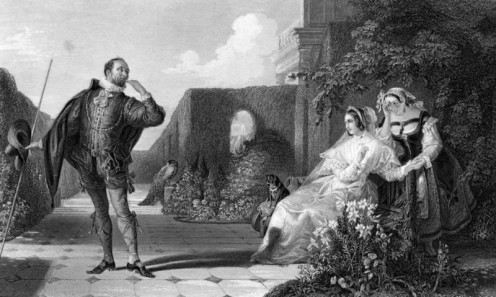
Malvolio
Malvolio, the character who is against the wilder goings-on in Shakespeare's play, is described, by Maria, as 'something of a Puritan'.
Elizabeth Story Donno, in an introduction to William Shakespeare's 'Twelfth Night', comments:
~ "When Malvolio reproves his roistering, Sir Toby replies indignantly "Dost thou think, because thou art virtuous there shall be no more cakes and ale?"
'Hamlet' + 'Twelfth Night' - That appears to be it!
Shakespeare's reference in Hamlet and his 'Twelfth Night' play seem to be the sum total of his Christmas references!
There are, however, a number of Winter references.
Let us have a quick look at those:
"When Icicles Hang by the Wall"
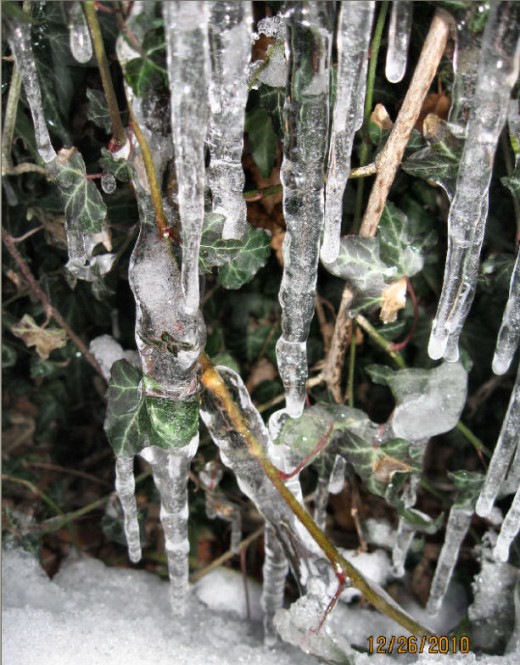
An Excerpt from 'Love's Labour's lost' - 'Winter' Poem
* * * * * * *
'WINTER.
'When icicles hang by the wall
And Dick the shepherd blows his nail
And Tom bears logs into the hall
And milk comes frozen home in pail,
'When blood is nipp'd and ways be foul,
Then nightly sings the staring owl, Tu-whit;
Tu-who, a merry note,
While greasy Joan doth keel the pot.
'When all aloud the wind doth blow
And coughing drowns the parson's saw
And birds sit brooding in the snow
And Marian's nose looks red and raw,
'When roasted crabs hiss in the bowl,
Then nightly sings the staring owl, Tu-whit;
Tu-who, a merry note,
While greasy Joan doth keel the pot.'
* * * * * * * * * * * * * * * * * * * * * * * *
Love's Labour's Lost - Act 5, Scene II - Comment
In a severe winter, we have all seen icicles hanging along the windows.
And who hasn’t seen milk frozen in the bottles?
Or heard people, their noses red and raw, coughing and sneezing during a quiet time in a church, or a theatre, perhaps.
The north wind blows; a carpet of snow lies all around. Logs have been collected and stored for a warm winter blaze. And people are blowing on their hands and stamping their feet to try to warm them up.
Not everyone will be eating roast crab ~ but many will have a roast turkey.
But why is greasy Joan keeling that pot?
~ Well, it just means that she is cooling the contents, ready for serving.
She is probably 'greasy' because she is working so hard, preparing a hot winter meal ~ possibly even Christmas dinner (though Shakespeare certainly doesn’t say this).
Romeo & Juliet
A Shakespeare 'Winter ' Quote: 'Kindle fire with snow'?
"As soon go kindle fire with snow,
"As seek to quench the fire of love with words"
~ William Shakespeare.
As You Like It, Act II, Scene VII
Lord Amiens, a musician, sings before Duke Senior's company
'Blow, blow, thou winter wind,
Thou art not so unkind
As man's ingratitude;
Thy tooth is not so keen,
Because thou art not seen,
Although thy breath be rude.
'Heigh-ho! sing, heigh-ho! unto the green holly:
Most friendship is feigning, most loving mere folly:
Then, heigh-ho, the holly!
This life is most jolly.
'Freeze, freeze, thou bitter sky,
That does not bite so nigh
As benefits forgot:
Though thou the waters warp,
Thy sting is not so sharp
As friend remembered not.
'Heigh-ho! sing, heigh-ho! unto the green holly:
Most friendship is feigning, most loving mere folly:
Then, heigh-ho, the holly!
This life is most jolly.'
"Heigh-Ho, The Holly!''
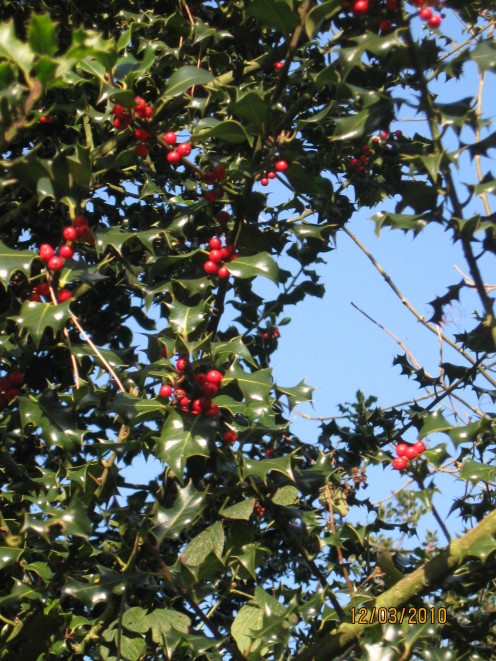
As You Like It, Act II, Scene VII - Comment
There is nothing quite so unkindly cold and bitingly painful as an ungrateful fellow human being or ~ especially ~ a friend who would prefer to forget you.
The chorus 'Heigh-ho! sing, heigh-ho! unto the green holly' sound quite jolly until the next line is read:
'Most friendship is feigning, most loving mere folly'
The final two lines are also lively and fun ~ typical, perhaps, of a lively song of the day:
'Then, heigh-ho, the holly!
This life is most jolly.''
Is Shakespeare saying that, in spite of the coldness of some winters, and of some supposed friends and lovers, life goes on ~ just like the evergreen holly ~ and can still be jolly?
Or is he being sarcastic?
A Shakespeare 'Winter ' Quote: Shakespeare's Sonnet Number 97
Excerpt from the beginning of the poem ~ separation from a loved-one is compared to the dark and freezing days of winter:
'How like a winter hath my absence been
From thee, the pleasure of the fleeting year!
What freezings have I felt, what dark days seen!
What old December's bareness every where!'
And from the end;
'...the very birds are mute; Or, if they sing, 'tis with so dull a cheer That leaves look pale, dreading the winter's near.'
Sonnet Number 97 - Comment
This poem describes what is is like to be separated from a loved-one. It is compared to the dark and freezing days of winter.
The poet has felt himself freezing.
He has experienced dark days.
'Bareness' seemed to be 'everywhere'.
Birds either did not sing, or sang cheerlessly.
These lines denote misery and depression.
They do not tell of the sparkling frost, or the purity of a blanket of snow, or of a winter sun in a blazing blue winter sky. This is winter seen in a negative light.
A Shakespeare 'Winter ' Quote: Richard The Third Act 1, Scene 1, 1–4
'Richard:
[Ie. Richard III]
'Now is the winter of our discontent
Made glorious summer by this son of York;
'And all the clouds that low'r'd upon our house
In the deep bosom of the ocean buried.'
Richard The Third Act 1, Scene 1 - Comment
This is not even about winter, yet the term is still used. Why?
Because, once again, a negative idea is compared with this season:
'Now is the winter of our discontent Made glorious summer' ~ 'Discontent' is related to 'winter'; 'glory' is related to 'summer'.
Two Shakespeare 'Winter ' Quotes: Shakespeare's Sonnets Number 2 and 6 - Extracts:
From Shakespeare's Sonnet 2:
'When forty winters shall beseige thy brow,
And dig deep trenches in thy beauty's field,
Thy youth's proud livery, so gazed on now,
Will be a tatter'd weed, of small worth held ...'
* * *
From Shakespeare's Sonnet 6:
'Then let not winter's ragged hand deface
In thee thy summer, ere thou be distill'd:
Make sweet some vial; treasure thou some place
With beauty's treasure, ere it be self-kill'd.'
* * *
Sonnets 2 and 6 - Comment
Again, these sonnets are not about winter. They are about aging. In these instances, winters are used to denote years.
In Sonnet 2, we find: '... forty winters shall beseige thy brow, And dig deep trenches ...'
Indeed, after forty years people are likely to have furrowed brows. And it is true that the attractive beauty of youth may be replaced by something less attractive: '.. youth's proud livery, so gazed on now, Will be a tatter'd weed ..'
But 'forty summers' could have been used instead of 'forty winters', if this were just about the passing of time. Perhaps Shakespeare is not just referring to the number of years, but about the harshness of the effects of winter, in particular.
In Sonnet 6, when Shakespeare writes: 'let not winter's ragged hand deface In thee thy summer', this may, indeed, be an indication that he considers the number of winters, rather than the number of years, to be the cause the deterioration in physical beauty.
Snow in Winter in the English Midlands
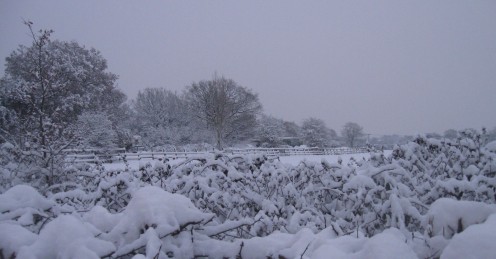
There are Nine References to Winter in 'A Winter's Tale'
Mamillius:
'A sad tale's best for winter.'
Paulina:
'A thousand knees
Ten thousand years together, naked, fasting,
Upon a barren mountain and still winter
In storm perpetual, could not move the gods
To look that way thou wert.'
Autolycus:
'When daffodils begin to peer,
With heigh! the doxy over the dale,
Why, then comes in the sweet o' the year;
For the red blood reigns in the winter's pale.
The white sheet bleaching on the hedge,
With heigh! the sweet birds, O, how they sing!
Doth set my pugging tooth on edge;
For a quart of ale is a dish for a king.'
Perdita:
'Give me those flowers there, Dorcas. Reverend sirs,
For you there's rosemary and rue; these keep
Seeming and savour all the winter long: ...'
Polixenes:
'Shepherdess,
A fair one are you--well you fit our ages
With flowers of winter.'
Perdita:
'Sir, the year growing ancient,
Not yet on summer's death, nor on the birth
Of trembling winter, ...'
Camillo:
'My lord, your sorrow was too sore laid on,
Which sixteen winters cannot blow away ..'
William Shakespeare's First Folio
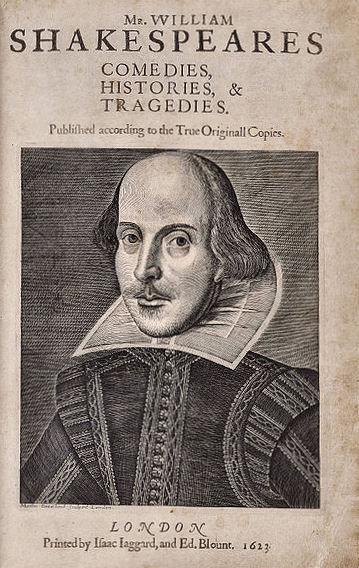
A Winter's Tale - Comments
There are nine uses of the word 'winter' in 'a winter's tale.
*
The first fits with other Shakespearean quotes, where negative thoughts, ideas, events, etc. are related to winter. Shakespeare literally has Mamillius say: 'A sad tale's best for winter'.'
William Shakespeare is relating the months of winter to sadness, misery depression, etc.
*
As before, with the holly in 'As You Like It', Shakespeare comments on certain evergreen plants; the 'flowers of winter' ~ 'rosemary and rue' ~ which 'keep Seeming and savour all the winter long'. In the depths of a deathly winter, the evergreens give everyone hope of a spring a summer to come.
*
Perdita's words are beautifully poetic: 'Not yet on summer's death, nor on the birth of trembling winter'.
Trembling winter' is a delightful phrase, but it cannot arrive until the 'death' of summer'.
*
Camillo uses the term 'sixteen winters' to denote the passage of time ~ as we have seen before. Again, however, the term is used in relation to sorrow: 'your sorrow was too sore ...'. Time may heal, but fifteen years was not long enough to ease this man's pain. It had to be 'fifteen winters' ~ 'fifteen summers' would not give the same negative effect.
Shottery, Stratford Upon Avon, Warwickshire, July 2007 - Anne Hathaway's Village
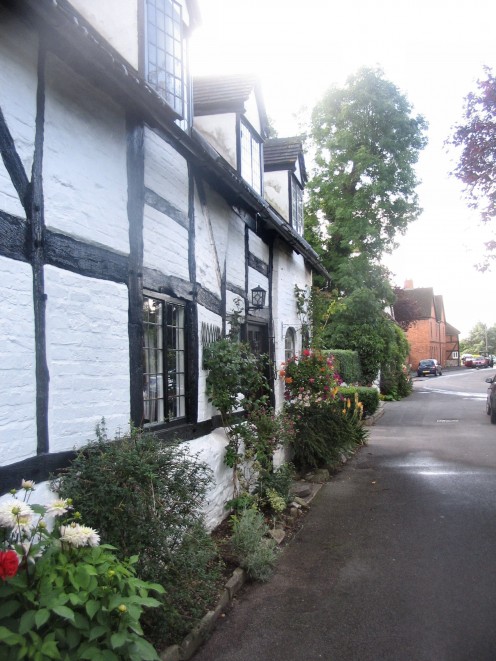
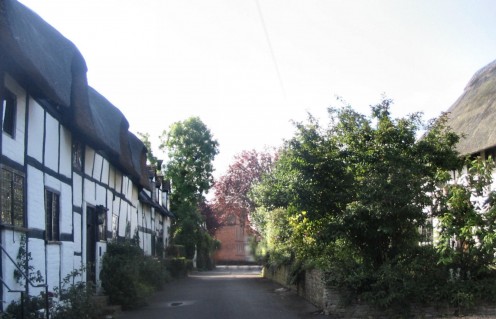
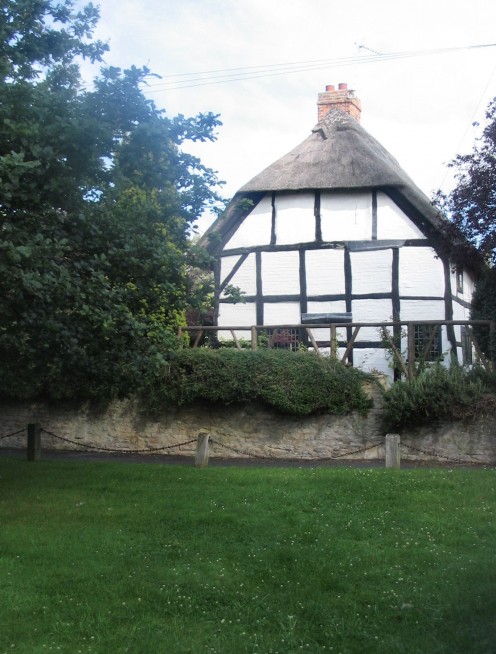
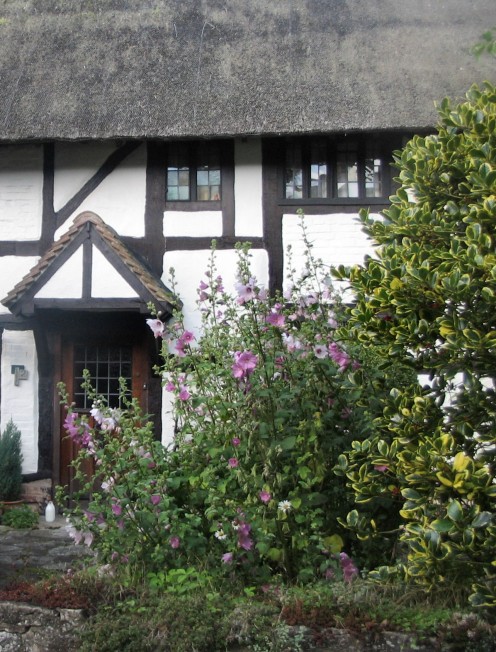
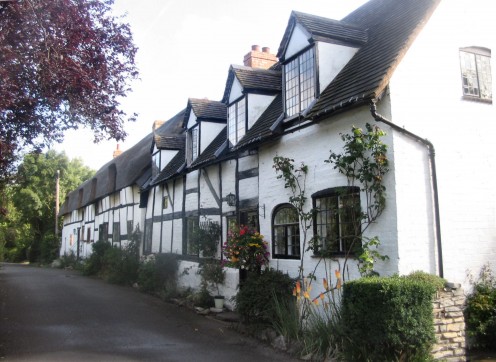
Drawing Conclusions - William and Anne
William Shakespeare did not write very much about Christmas and Max Beerbohm suggests that this is because he loathed Christmas and that this must have been because of a connection to something else he hated. Why would he hate a date? ~ Apparently, because he hated his wife ~ and his wife was born on that date.
Let us consider this further.
Was Anne Hathaway born on Christmas Day?
~ I don't think that anyone knows.
Did William Shakespeare hate his wife?
~ How can anyone know?
Are there any clues?
Well, he spent most of his married life in London ~ away from Anne.
When he died, he first omitted Anne completely from his will. This is, apparently unusual, since, even though a wife would automatically inherit certain things, a husband would usually include her name. Later, though, the bequest of his second best bed was added for Anne.This has been interpreted as insulting, but the second best bed would, most likely, have been the marital bed, as opposed to the guest bed. Who knows how important that bed was to William and Anne? This bequest may have been a symbolic one of affection.
It is true that Shakespeare's married couples ~ Romeo and Juliet, Gertude and Claudius, etc, etc ~ meet unfortunate early endings. It is also true that Shakespeare describes some unpleasant women ~ naming one 'the shrew'. Perhaps he is thinking of his own marriage.
So, Shakespeare may or may not have remained in love with his wife, after their children were born. He was only 21 by then and she was 8 years his elder, so there is every possibility that they grew apart ~ and his 'Spring' poem, in 'Love's Labour's Lost', mentions married men being mocked by the cuckoo:
'The cuckoo then, on every tree,
Mocks married men; for thus sings he, Cuckoo;
Cuckoo, cuckoo: O word of fear,
Unpleasing to a married ear!'
Also, is it possible that Shakespeare could be thinking of Anne when he writes:
'Blow, blow, thou winter wind, Thou art not so unkind As man's ingratitude;
................................
Most friendship is feigning, most loving mere folly'
Probably not ~ it sounds more like anger and upset over the disloyalty of a friend than over his wife.
So we do not really know the state of his marriage, but even if William and Anne Shakespeare were, to all intents and purposes, separated, this does not mean that he hated her or that her birthday was at Christmas.
* * *
Bard of Avon / Church of Rome
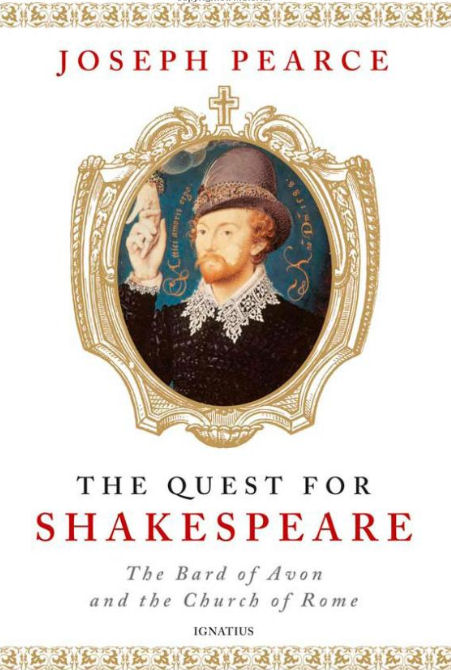
Anne Hathaway's Cottage in Summer - The Season Shakespeare Preferred?
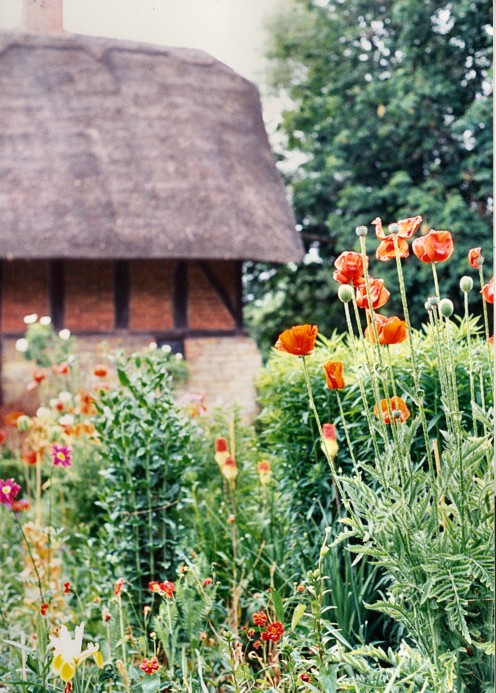
Shakespeare + Christianity
Drawing Conclusions - Did Shakespeare loathe Christmas at all?
We have noted that Shakespeare only mentions Christmas ~ though not by name ~ in ''Hamlet' and 'Twelfth Night'?
Hamlet
Are the reference negative ones?
Christmas Eve is referred to in 'Hamlet' as the 'season .. wherein our Saviour's birth is celebrated' and he describes it thus: 'So hallow'd and so gracious is the time'.
'Hallowed' and 'gracious' are not terms used to describe a time that is 'loathed'. They are both positive terms with ~ understandably, since this is the time of the Saviour's birth ~ Christian undertones.
'Twelfth Night'
'Twelth Night' is a play full of mischief, confusion and revelry ~ much like 'Twelfth Night' in the Christmas season. Since this was the day that was particularly celebrated in those days, to write an entire play around this title indicates that Shakespeare was not ignoring the season at all, but toasting it!
The one noticeably serious character in the play is Malvolio.
As we have already noted, two of the 'fools' in the play made remarks about his seriousness ~ Maria, stating that he was 'something of a Puritan' and Sir Toby Belch admonishing him with "Dost thou think, because thou art virtuous there shall be no more cakes and ale?"
We have also noted that the words of 'fools' were not always foolish.
Puritans hated Christmas ~ especially the riotous merriment that occurred on Twelfth Night'. Puritans also hated Roman Catholicism. If Shakespeare loathed Christmas, then he would have had much in common with the Puritans, but, interestingly, it has been suggested that Shakespeare may actually have been a secret Catholic, himself.
Is it possible that Shakespeare might have agreed with Malvolio, regarding his criticism of Christmas celebrations?
Possibly ~ but, if so, would he have invented such a name for him?
'Malvolio' means 'ill will' or 'I mean ill will'. That sound rather critical to me.
Since Shakespeare uses positive words like 'hallowed' and 'gracious' to describe the religious aspect of Christmas and 'cakes and ale' to describe the partying, I do not agree that he loathed Christmas per se.
* * *
Shottery, Stratord, Anne Hathaway's Cottage in Summer
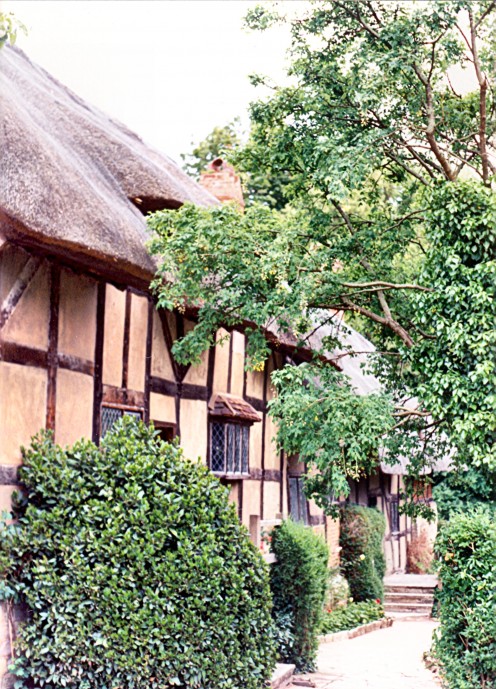
Anne Hathaway's Shottery
Holly in Winter
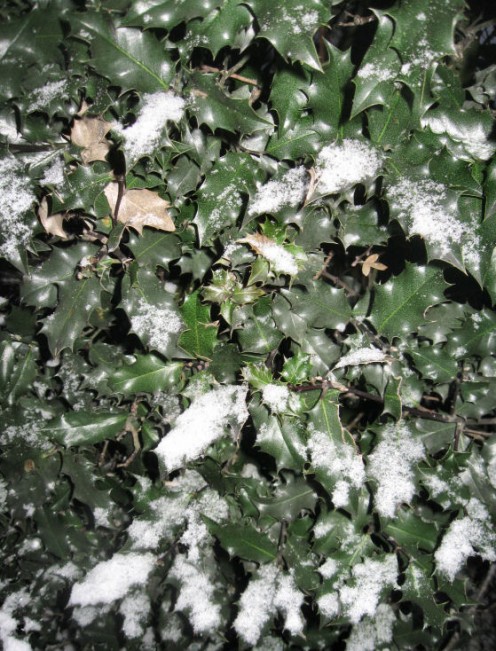
Winter Landscape in the English Midlands
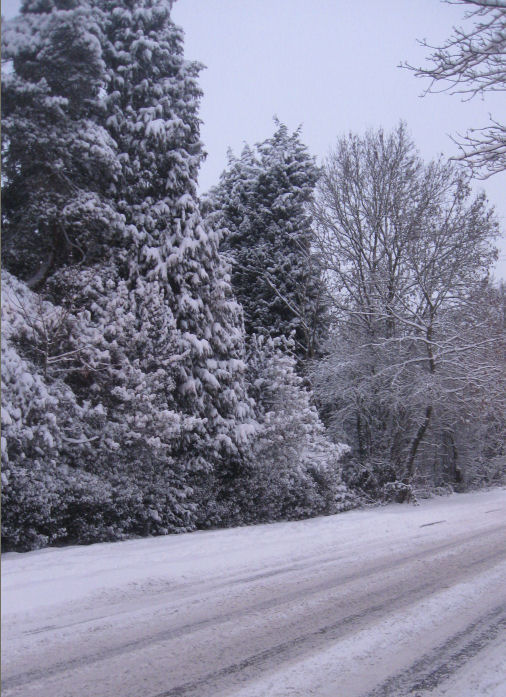
Books On Shakespeare
Drawing Conclusions - Christmas, Or Winter?
I think that he may have hated winter though. As a poet he could see and describe winter's beauties ~ but that does not mean that he had to enjoy winter.
It would have made travel difficult ('ways be foul') so that it was difficult to see his family.
It
would have caused coughs and colds and other ailments like flu ~
affecting him, his family, his friends, his troupe of actors ('coughing
drowns the parson's saw ... And Marian's nose looks red and raw'). Perhaps his plays couldn't be heard through the noise!
People would be blowing on their hands, in an attempt to keep warm, as their blood felt as if it were as frozen as milk in the pails ('Dick the shepherd blows his nail ... When blood is nipp'd'). He remembers 'What freezings have I felt, what dark days seen!'.
He refers to winter in negative terms, and he likens negative ideas to winter
'How like a winter hath my absence been'
'the winter of our discontent'
'forty winters shall beseige thy brow'
'.. winter's ragged hand ...'
'A sad tale's best for winter'
And winter is often juxtaposed with spring or summer:
Sonnet 97:
'How like a winter hath my absence been .. and yet this time removed was summer’s time ..'
Richard III:
'Now is the winter of our discontent made glorious summer by this son of York'
Sonnet 6:
'..let not winter's ragged hand deface in thee thy summer ..'
'A Winter's Tale'
'Not yet on summer's death, nor on the birth of trembling winter'
Love's Labour's Lost
The
'Winter' poem in this play is the second part of a two-verse poem on the
seasons ~ the first being named 'Spring' ~ although it reminds the
reader also of Summer. It begins:
'When daisies pied and violets blue
And lady-smocks all silver-white
And cuckoo-buds of yellow hue
Do paint the meadows with delight,
The cuckoo then, on every tree,
Mocks married men; for thus sings he, Cuckoo'
I conclude that it was not Christmas that Shakespeare loathed, but winter.
His writing indicates that he hated the cold, the darkness, the bad roads, the illnesses ~ the way it made him feel. It is clear that, in winter, he longed for spring and summer, with flowers, warmth and sunshine.
But summer he seems to love ~ and he mourns its loss when it has to die so that trembling, freezing, dark, painful winter can replace it.
Luckily, Christmas, with its joy, for Christians like Shakespeare, in the birth of Jesus and its merry partying, helps to ease the horrors of winter, and evergreens, like holly and rosemary, promise better, sunnier, warmer summer days ahead.
In Conclusion
I conclude that it was not Christmas that Shakespeare loathed, but winter.
His writing indicates that he hated the cold, the darkness, the bad roads, the illnesses ~ the way it made him feel. It is clear that, in winter, he longed for spring and summer, with flowers, warmth and sunshine.
The only aspect of winter that cheered Shakespeare seems to have been Christmas.
His Christian beliefs enabled him to see something very special in Christmas Eve. No matter how cold and dark in was, Christmas Eve was also 'hallowed and gracious'.
And the indoor warmth and merriment of the season must have been in stark contrast to the freezing dull weather outside. It was a celebratory time of 'cakes and ale'!
*
Tricia Mason
William Shakespeare:
Background
1564 ~ William Shakespeare is born ~ possibly / probably on 23rd April
Birthplace ~ Stratford-upon-Avon, Warwickshire,
26th April 1564 ~ Baby William baptised at Holy Trinity Church, Stratford
Son of John, a glove-maker and Mary Arden of Wilmcote, daughter of Robert Arden, farmer.
School ~ Probably attended Stratford's Grammar School (King Edwards School).
November 1582 ~ marries Anne Hathaway of Shottery, daughter of Richard Hathaway, farmer.
William was 18; Anne was 26.
26th May 1583 ~ daughter Susanna baptised
1585 ~ twins Judith and Hamnet born
c1591 ~ c1595 ~ 'Romeo and Juliet' written
1592 ~ Dramatist Robert Greene calls Shakespeare 'an upstart crow'.
1596 ~ Hanmet dies
1596 ~ John Shakespeare is granted a coat-of-arms
1599 ~ Shakespeare's acting company, the Lord Chamberlain's Men, build the Globe theatre.
'1599' ~ Title of a prize-winning book about Shakespeare, by James Shapito
Circa 1599~1601: 'Hamlet' written
1601 ~ John Shakespeare dies and William inherits the right to be called 'gentleman'
1603 ~ James I becomes king on Queen Elizabeth I's death.
1603 ~ James I grants royal patronage to Shakespeare's acting company, renamed the 'King's Men.'
About 1611 ~ Shakespeare is spending his time in Stratford again, rather than London.
March 1616 ~ Shakespeare signs his will
23 April 1616 ~ Shakespeare dies, in Stratford, on the supposed 52nd anniversary of his birth.
25 April 1616 ~ Shakespeare is buried in Holy Trinity Church, where he was baptised.
Shakespeare Links
'A Bird’s-Eye View of Stratford-on-Avon - J. Ross Brown
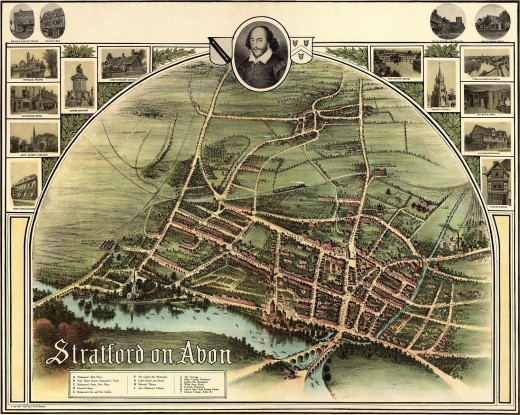
Stratford Upon Avon - Home of Shakespeare
Gervase ELWES ~ BLOW, BLOW, THOU WINTER WIND (1916)
My Christmas / Winter Hubs
Some of my Shakespeare Items on Hub Pages:
- Shakespeare's Hamlet - The Sources of Hamlet's Tragedy
- Shakespeare's Hamlet - Is Claudius a careful ruler and loving husband, or a hateful, lying villain?
- Shakespeare's 'Hamlet' - What do the soliloquies in Acts 1, 2, and 3 reveal about Hamlet's true feel
- Hamlet's Last Long Soliloquy Analysis and Commentary - Shakespeare's 'Hamlet'
- Rosencrantz and Guildenstern in Shakespeare's 'Hamlet' - Are they "half men"?
- Shakespeare's Hamlet - Did Gertrude Know that King Claudius had Murdered her Husband?
- Shakespeare's Hamlet and his 'Foils' - Fortinbras and Laertes.
- Shakespeare - Hamlet - DVD Play Reviews
- Shakespeare's Presentation of the Theme of Colonisation in The Tempest'.
- A Sonnet - By William Shakespeare
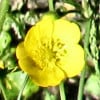
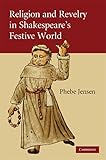


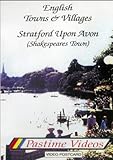

![Twelfth Night [DVD]](https://m.media-amazon.com/images/I/51OWKKDZAhL._SL160_.jpg)
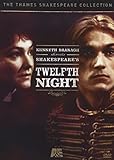


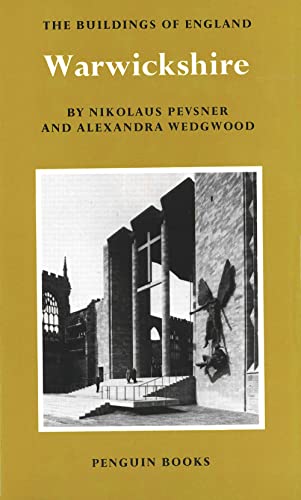





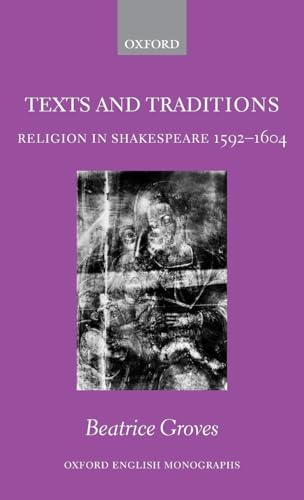
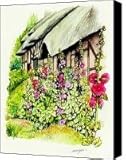

![Stratford-upon-Avon and the Shakespeare Country, No. 2 [VHS]](https://m.media-amazon.com/images/I/5138189CV0L._SL500_.jpg)
